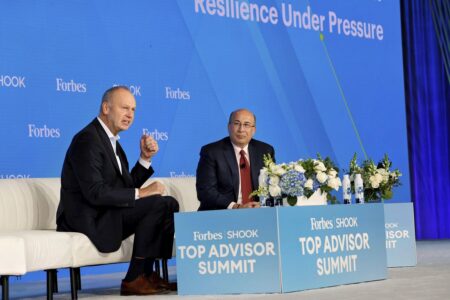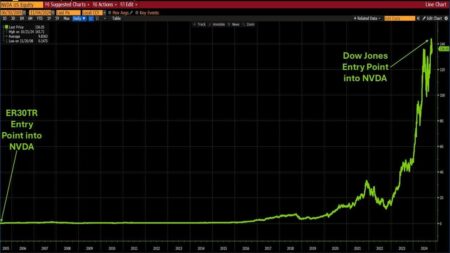It should be no surprise to anyone that our divided country is living in two different realities. From the people pushing the Big Lie that Donald Trump won the 2020 presidential election to Phil Lyman, the Republican candidate for Utah governor, blaming the collapse of Baltimore’s Francis Scott Key Bridge on the effort to increase diversity in workplaces.
But, sometimes there’s a man, I won’t say a hero, because what’s a hero? But, sometimes there’s a man, a man for his time and place, who fits right in, and with apologies to the Big Lebowski, Chandran Sankaran, is that man.
In 2022, Sankaran created Gigafact, a nonprofit that equips nonpartisan local and regional newsrooms with the startup funding, training, software tools, recruitment assistance, and distribution support to give them the ability to counter misinformation.
“Many people are afraid to attack the misinformation problem,” said Sankaran. He founded Gigafact to go to high-quality, trusted, local newsrooms and teach them to fact check claims circulating on social media. John Marcom, the editorial head of Yahoo! Finance, served as Gigafact’s founding editorial director and helped develop its format.
Gigafact is currently partnered with eight regional and metro newsrooms—Wisconsin Watch, The Nevada Independent, MinnPost, Fort Worth Report, El Paso Matters, Oklahoma Watch, Skeptical Science, and Colorado Sun. Sankaran said the network is expanding and plans to partner with at least 20 U.S.-based newsrooms ahead of the 2024 elections.
One of its partners, Wisconsin Watch is a nonprofit, online, state-based, investigative news outlet that provides content to dozens of member newspapers, television stations, and online publications around the country for free.
“Gigafact really gets to the nub of what we do as journalists, which is strive to find the facts and the truth,” said Matthew DeFour, state bureau chief at Wisconsin Watch. “With Gigafact, we get away from trying to check on what the politicians are saying and just getting the actual facts, because I think that’s what the public is interested in.”
DeFour added that in this current climate of misinformation, it’s essential that Americans have a shared reality from which they can make informed decisions.
The fact checking process has a journalist constantly scrolling social media looking through comments that politicians have made and anything else that doesn’t pass the “smell test.” The goal is to find things that are going viral.
The story is published as a fact brief of about 150 words. It’s a short explanation of the issue and then whether it’s true or false.
Gigafact provides the format, so that all briefs are in the same style, the platform, the content management system for the briefs from all the partners, and publishes them on its own website. It also maintains the network that provides the distribution system that allows others to take the briefs, as well as raising funding.
According to Pew Research, half of U.S. adults get their news from social media.
“With people saying whatever they want and making crazy claims across the Internet, no one is providing fact checking at a local level, nor getting into social media discussions to help people parse out misleading or false information,” said Henry A. Brechter, editor-in-chief of Allsides, a media technology company. “We know people want it and need it. And, as Gigafact expands to more states, I think has the opportunity to become the most impactful fact-checking organization in the country.”
Since Wisconsin Watch joined the Gigafact network, the news outlet has seen significant growth in web traffic, and many of its most-read stories are Gigafact briefs. Additionally, Gigafact fact briefs have been cited by top national news outlets, including NBC, The Washington Post and Vanity Fair.
Prior to starting Gigafact, Sankaran was a software entrepreneur building companies that helped corporations streamline operations. His most successful was Zyme, a channel data management software company founded in 2004.
After selling Zyme in 2017, he became dismayed about the rise of Americans becoming unable to differentiate between fact and fiction. He decided to use his money to address the global misinformation problem.
Over the past year, Gigafact has operated primarily through gifts from individuals and family foundations. Recently, it secured grants from major donors, including $250,000 from Google
GOOG
“We are intrigued by Gigafact’s straightforward, tech-enabled approach to bolstering local journalism while increasing access to trustworthy information,” said Jess Fleuti, principal for portfolio and investments at Skoll.
Read the full article here
















